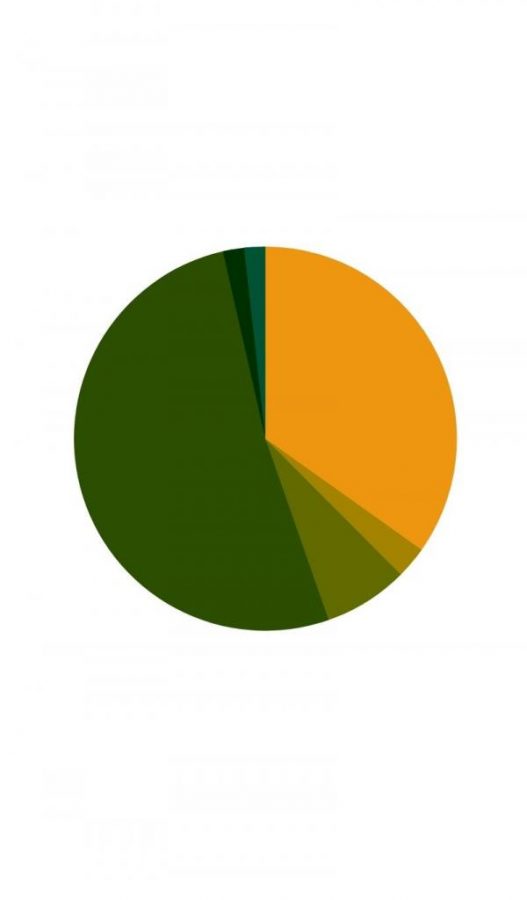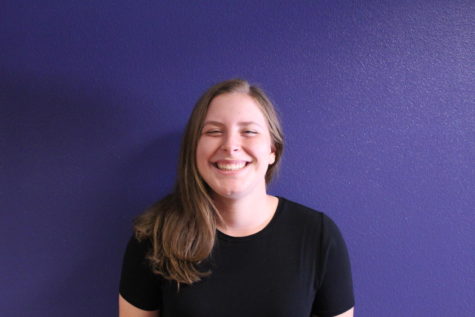Should teachers talk about current events in class?
Many students wish teachers would acknowledge events outside of school.
May 7, 2021
When we walk into school, we expect the four core basic subjects: math, science, English, and history. But how often do we talk about things outside of the classroom that impact our lives?
In a USJ poll of 96 students, predominantly history and English teachers regularly brought up current events and/or controversial political topics in class.
“I approach [teaching] more holistically, so of course I have my content that I need to cover, but we’re dealing with humans, and we’re existing in a world together,” English teacher Yoon Park said. “I think, as an educator, it would be remiss of me to not address what’s going on outside these walls.”
Some teachers find it harder to incorporate discussion into class because there is too much material to cover.
“Personally, it’s a little bit harder to do that in a science course,” Science teacher Michael Maudal said. “Because with our set standards, there isn’t much fluctuation to incorporate [current events].”
Many students go to school to get a holistic education and want to connect with their teachers – whether that be about core subjects or what is happening outside of the classroom.
“I believe that it is extremely important to discuss outside events,” sophomore Theodore Hardman said. “For example, the Capitol insurrection and other events occurring in the present are going to go into our history books; it seems stupid not to discuss it in the moment.”
Subjects like math and science usually focus more on numbers and facts, so it’s more difficult to integrate current events into class naturally; however, some can talk about experiences outside of the classroom.
“We talk a lot about inequities in science, especially in our CP chemistry, whether that be gender inequities or racial inequities,” Maudal said.
Many teachers do feel a sense of responsibility toward addressing issues that aren’t traditional to their subjects.
“I think it’s our duty,” Maudal said. “Any teacher, regardless of what subject area we teach, we need to incorporate information in.”
Classrooms can also open up opportunities for discussion so students can hear each other’s feelings and opinions about political topics and current events. This helps students understand each other and the world around them.
“It’s a good chance for people to talk about what they heard because people hear different things from different sources,” Senior Faith Watkins said. “And then people who heard nothing can learn about it from different perspectives.”
Some teachers may be hesitant to go over controversial topics in class because it may put them at risk of looking like they are giving their opinions.
“I think making students aware of topics is very important and different from pushing their personal views on the students,” senior Eden Kinde said.
It can be difficult to facilitate conversations when there are many opinions about a topic. Tensions can run high when a topic is more personal to some students, so engaging with them in a positive way with a safe space is beneficial to the discussion.
“We also want to let a student’s voice be heard, and not be too quick to jump on that and say ‘hey this is incorrect, hey this isn’t,’ but to give them a platform to discuss, to talk in a safe place.” Maudal said.
This can also give teachers insight into their students and help strengthen their relationship. Hearing a student’s voice and perspective can open up the door for further conversations.
“It’s kind of important to know what your students believe because that’s a part of who we are,” junior L. Roberts said.
A lot of issues relate back to students personally, so it can be a way for teachers to connect and reach out.
“I’m caring about another human being, I’m caring about another group of people, and I want to validate their value,” Park said. “I know it’s mired in a lot of things that have become politicized, but I do feel that in schools, we can validate each other and not have to hide it or be afraid to speak out.”
Taking a few moments to acknowledge an event or tragedy may be necessary for some students. That also means students need to be educated on what is happening outside of Creek.
“We should incorporate our education into the events of the real world,” senior Ramsey Headrick said. “We lose opportunities to engage students in math class when the curriculum is completely detached from reality; discussing and connecting classes to current events could help make education more meaningful.”
Most students want teachers to connect class to outside themes because it could make an education more impactful. Teachers are meant to create safe spaces for students and a part of that is facilitating open conversations.
“I believe teachers should be able to talk to students about major events and use their classroom as an area which students can converse about major events without the fear of judgement,” freshman Doaa Zarooq said.
Talking about current events and controversial political issues leads to a more well rounded students. These conversations will be happening throughout a student’s life.
“I think it’s important to address these important political events to encourage awareness and political literacy,” senior Sally Webster said. “No matter your view, as long as the teachers don’t punish students for thinking differently, I absolutely think they should address these events. Political involvement starts young, and I believe that being informed and well-informed about events as a teen will likely translate into continuing to stay active as an adult.”



















